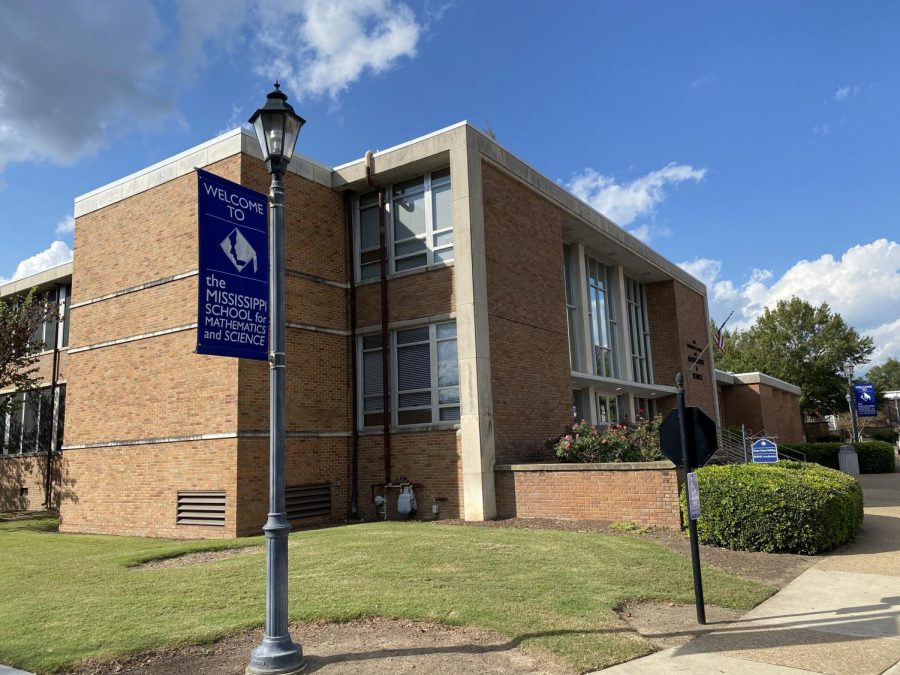Teachers’ stress heightened compared to previous years
MSMS students and faculty struggle while the COVID-19 pandemic continues.
October 25, 2021
This year, the MSMS community faced many unforeseen difficulties. Though students suffered immensely through this pandemic, faculty at MSMS struggled just as much.
One of the departments in which teachers have shown large amounts of stress is the math department. Math classes at MSMS are taught at a much higher level of difficulty than those at other schools in the state, so students’ grades are typically lower. Due to the recent departure and return of in-person teaching, that decrease is more pronounced.
Math teachers, including Shae Koenigsberger, said they have seen many disparities in the math grades at MSMS.
“Teachers are seeing learning deficiencies within the schools, state and nationally,” Koenigsberger said. “The Mississippi Department of Education just reported data comparing test results from the Mississippi Academic Assessment Program tests. Mathematics Proficiency decreased 12.3% from the test in 2019. The English Language Arts components decreased 6.7%. So, this is a trend backed by data among our state. I’m sure national studies are currently being conducted.”
Other math teachers, including Lauren Zarandona, said they feel people just need to get acclimated to the new schedule.
“I don’t know that I have seen declining or increasing learning [or] grades,” Zarandona said.” It seems like we all had to re-learn the eight-period Monday-Wednesday-Friday and five-period Tuesday-Thursday schedule again. We also had to overcome both trauma and fears left over from the pandemic. I have seen students work hard to learn to be in-person again.”
Many teachers said student stress to be successful was normal for the pre-pandemic years; however, that stress seems more significant this year due to the decreasing grades. Koenigsberger said she put in many measures to make sure the pandemic does not negatively affect students’ academic progress.
“Teachers at MSMS are exhausting themselves to provide avenues of success for students,” Koenigsberger said. “We want our students to be successful and want our students to have healthy habits to be successful in college [and] life. I am working through my planning periods to offer help and guidance to students. We have several peer tutors for student support as well.”
Though many teachers are creating immediate solutions, some students feel the root is not something that can be fixed immediately. Zarandona said many elements from last year need to change.
“I do think we need to consider supports for what being a good student looks like, especially for students who feel behind or overwhelmed,” Zarandona said. “Part of this is time management, but a greater part is learning to learn at the moment and not wait to watch a video or get help from a teacher or tutor outside of class. Passive learning is not going to result in the kind of success that students desire. They need to work to actively engage in class and turn work in on time that is thoughtful and well done. Students also need to learn to talk to teachers in person again. We know that you all need help, but we need you to ask for it after you have put time into studying the material from class or attempting to practice on your own.”
Chemistry teacher Lib Morgan and Zarandona said these changes are needed due to hybrid and virtual learning.
“I think online and hybrid learning has stunted the ability of many students to learn,” Morgan said. “Many schools and teachers made extra allowances and accepted excuses during COVID-19 times that never would have been thought during a normal school year. Students seem to have forgotten how to be students.”
“In virtual or hybrid settings, it was very easy to not be present, even if you were in front of a camera,” Zarandona added. “We just put off doing what needed to be until we felt ready for it. We can’t do that now and stay physically and mentally well. There are too many distractions and responsibilities associated with actually being at MSMS between clubs and structured timelines for assignments.”
Overall, the teachers said they feel a lot of stress right now after hybrid learning. For Koenigsberger, the last piece of advice is one she gives not only to this class but to classes in future years.
“Think back to spring break of 2020. Some students never continued school after that. Many students were in Algebra I or Algebra II at that point,” Koenigsberger said. “Those are very fundamental courses for building higher mathematical skills. Then the next year, the school may have been virtual for extended periods of time — for current seniors, it was. That is a very long time to develop bad habits as a student. Or also, while being virtual, a student may have had other responsibilities to do at home, which meant the academics could not be number one. What we are witnessing right now is called growing pains. Students can rise to the rigor at MSMS, but it is going to take grit, resilience and perseverance from the student.”










Heath Stevens • Oct 25, 2021 at 12:55 pm
Keep doing the good work, Mr. Anderson!